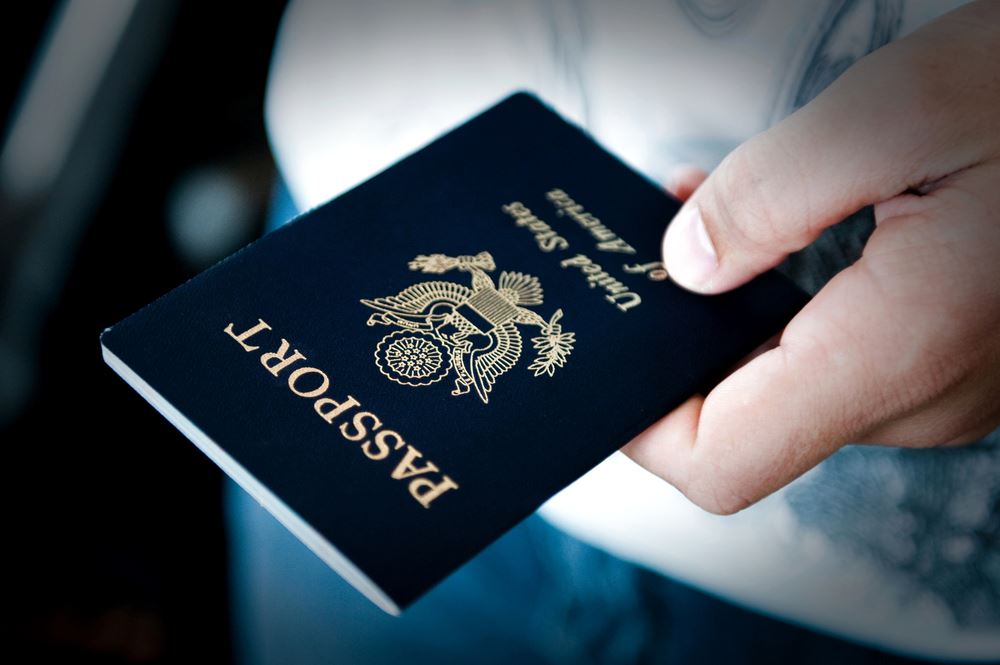Electronic payments and wage garnishments make it easier today to collect child support than in past decades. That does not mean child support enforcement is no longer an issue. Some parents are thousands of dollars behind in paying their court-ordered obligation.
According to the federal Office of Child Support Enforcement (OCSE), the average amount owed by a noncustodial parent is more than $23,000. OCSE is part of the U.S. Department of Health & Human Services (HHS).
Not paying child support has consequences. Anyone owing $2,500 or more in past-due support cannot get a U.S. passport. Those with a passport will have the travel document revoked leaving them unable to travel out of the country.
Passport Denial Program
State child support enforcement (CSE) agencies, through OCSE, notify the Department of Treasury about parents in their state who are behind on child support. Parents who are behind by a certain threshold will receive a pre-offset notice.
Parents receiving this notice meet either of these criteria:
- Noncustodial parent is at least three months behind and owes at least $150 (for cases receiving Temporary Assistance for Needy Family-TANF)
- Noncustodial parent owes at least $500 and is behind three months or more (non-TANF cases)
The pre-offset notice explains how much the parent owes, that any federal tax refunds due them will be intercepted, and what steps their state CSE can take to enforce the obligation. The notice also tells the delinquent parent about the Passport Denial Program.
The Passport Denial Program was created as part of the Personal Responsibility and Work Opportunity Reconciliation Act of 1996. The OCSE notifies the Department of State (DOS) when noncustodial parents owe more than $2,500 in back child support. Applications for a U.S. passport made by these noncustodial parents are denied by DOS. Any passports that have been issued to them cannot be used for travel.
If you apply for a passport but owe child support, DOS will notify you that your application for a passport is denied due to unpaid child support.
Removing Passport Restrictions
If you wish to receive a U.S. passport, you must pay all back child support owed. New Jersey has a zero-balance policy that requires that the child support account be brought current before anyone can be removed from the Passport Denial Program.
Once you no longer have a balance the following will occur:
- The New Jersey Family Support Payment Center (FSPC) requests for OCSE to remove your name from the passport denial process.
- HHS then communicates with DOS to have your name removed from the list.
- It takes two to three weeks from the time the request is received to the time your name is removed.
- DOS your application for up to 90 days after the notification of denial. If DHHS clears your name before the 90-day period expires, your current application will be processed.
- If you pay the owed child support after 90 days, you will need to reapply and pay the associated fees. You will not receive a refund for the fees paid with the previous application.
Parents who have child support arrears in other states will have to reach out to that state CSE for its process to pay what you owe. Your name will not be removed until all back support owed in all states is satisfied.
Other Consequences of Not Paying Child Support
State and federal authorities treat child support payments seriously. When you fall behind on child support, your passport isn’t the only thing at risk.
Additional consequences of not paying child support include the following:
- Driver license suspension
- Professional and business license suspensions
- Hunting and fishing license suspensions
- Bank account seizures
- Real estate liens
- Negative credit reporting
- Charged with contempt
Modifying Your Child Support Order
If you have fallen behind on your child support because your income has decreased, your ability to work has changed, or other factors, then you should seek to officially modify your child support order. Any change is not retroactive, and you will still need to pay what you owe. Petitioning the court as soon as possible is important so a downward modification is in place moving forward.
Getting a downward modification is no easy task. Providing for a child’s well-being is of paramount importance. There must be demonstrable reasons for the change, and it is up to the judge to make that determination.
Our attorneys at Lane & Lane, LLC have more than six decades of experience in family law. Whether you are considering filing divorce in New Jersey or on the other side and need help with enforcement or modifications, our team uses a compassionate yet strategic approach in representing our clients.
Schedule a consultation with a member of our legal team to discuss your options. Submit our online form or call us at (908) 259-6673 to get started.





